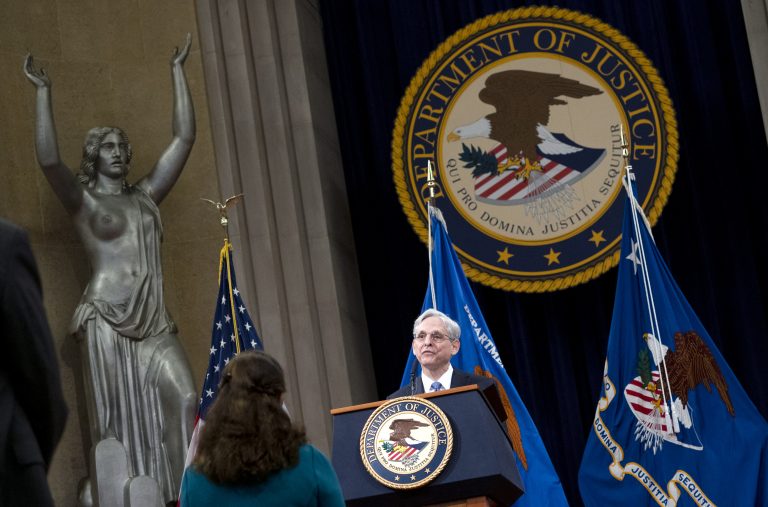A former professor living in Ohio has been sentenced to 37 months in federal prison for appropriating federal research grants to aid China’s scientific pursuits, the U.S. Department of Justice announced May 14.
Song Guo Zheng, 58, a former rheumatology professor and researcher at Ohio State University (OSU), was arrested last May in Anchorage, Alaska as he prepared to board a chartered flight to China in an attempt to flee the United States.
Authorities had confiscated “two laptops, three cell phones, several USB drives, several silver bars, expired Chinese passports for his family, deeds for property in China and other items” off Zheng at the time of his arrest, according to the DOJ.
Zheng pleaded guilty in November 2020, and admitted to lying on NIH grant applications to secure approximately $4.1 million dollars in order to help China develop its expertise in the areas of rheumatology and immunology.
In addition to his prison time, Zheng has been ordered to pay restitution of more than $3.4 million to the National Institute of Health (NIH) as well as approximately $413,000 to OSU.
Success
You are now signed up for our newsletter
Success
Check your email to complete sign up
“In yet another case involving the Chinese government’s Thousand Talents program, Song Guo Zheng will spend the next 37 months in a federal prison because he chose to lie and hide his involvement in this program from U.S. research funding agencies,” stated Attorney General John C. Demers for the Justice Department’s National Security Division.
Zheng managed a team of scientists conducting autoimmune research at the OSU as well as the Pennsylvania State University.
Assistant Director Alan E. Kohler Jr. of the FBI’s Counterintelligence Division said, “For years the defendant concealed his participation in Chinese government talent recruitment programs, hiding his affiliations with at least five research institutions in China.”
“Stealing is stealing but stealing at the behest of a foreign government’s concerted effort to pilfer our nation’s innovations and technology takes things to a new and significantly worse level.” said Acting U.S. Attorney Vipal J. Patel for the Southern District of Ohio.
The Thousand Talents Plan
The Thousand Talents Plan is the Chinese Communist Party’s drive to recruit science talent for its own technological advancement, as well as to steal intellectual property from rival countries and research institutions.
Court documents state that while employed at OSU, Zheng was also working at the Third Affiliated Hospital at Sun Yat-Sen University, a state-controlled school in southern China’s Guangdong Province, as reported by The Epoch Times. The university’s now defunct homepage named him as an expert under the Thousand Talents Plan.
Zheng failed to disclose this conflict of interest, among others, to his U.S. employers as well as the NIH.
Special Agent in Charge Lamont Pugh III for the U.S. Department of Health & Human Services’ Office of Inspector General stated that “Reporting potential conflicts of interest when seeking grant funding from the National Institutes of Health is imperative in ensuring the public’s trust in the research being conducted and how it is utilized.” He continued, “Making false statements to conceal potential conflicts violates that trust and the law.”
This case is but one among numerous federal actions targeting CCP affiliates who covertly collaborate with Chinese institutions while receiving research funding from U.S. taxpayers.
You Xiaorong, a Chinese-born American citizen, was recently convicted for stealing $120 million worth of U.S. trade secrets from Coca-Cola as well as other companies.
U.S. officials say that the “Thousand Talents Plan” serves as an illegal conduit for the transfer of U.S. research and expertise to Chinese entities.
Prosecutors stated that Zheng had been participating in the Plan since 2013 and used research conducted in the U.S. to benefit the Chinese government’s own research ambitions.
Sources state that before residing in Ohio, Zheng also worked at the University of Southern California as well as Penn State University.







